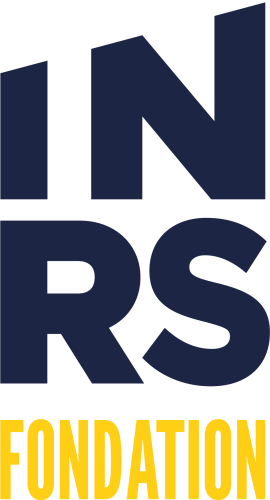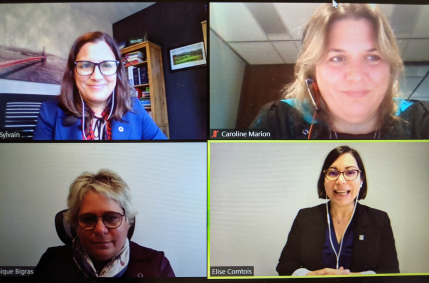Webinar summary: “Succession planning and legacy gifts”
The pandemic has led some of us to self-reflect on many different aspects, namely about the kind of heritage they wish to leave behind.
Planned legacy gifts through monetary or non-monetary bequests are an attractive option for those interested in supporting a cause or a charitable organization. However, this form of philanthropy remains relatively unknown in Quebec. Yet, a well-planned wealth management strategy, combined with basic tax notions, can be a powerful tool to maximize the positive effect of a donation.
This was the theme of “Succession planning and legacy gifts”, a webinar session delivered on November 17th by two experts from Desjardins Wealth Management: Me Dominique Bigras and Me Caroline Marion, and led by Ms. Sophie Sylvain. This webinar provided more thorough information following the virtual event Demystifying charitable giving presented in October as part of the second edition of Philanthropy Week at INRS. Here’s an overview:
What you need to know:
- First, it’s useful to know what are the different types of estates (with or without a will) and what they allow or won’t allow according to the Civil Code of Quebec.
- Understand the roles of the key stakeholders involved in an estate (heir, liquidator, legatee) and the powers conferred upon each of them by law.
- What are the main types of wills: With witnesses, holographic, and notarized. The will executed by a notary being the only way of ensuring it complies with the law and gives legal effect to the testator’s last wishes.
- The different types of legacy gifts: Monetary donations, shares/other securities listed or unlisted on the stock exchange, life insurance policy, paintings or other gifts, property, and the pros and cons of each or them. For instance, the donation of shares/other securities enables a tax reduction and gives access to a charitable donations credit. Donating a building can lead to property management or environmental issues.
- The three recipients of an estate bequest: Universal legatee, legatee by universal title, and legatee by particular title (for instance, a charitable organization).
Key takeaways:
- Donating money or other goods to a charitable organization allows a person to make a philanthropic gesture that will survive them.
- The Civil Code of Quebec considers legacy giving as an honourable and recognized action. Consequently, laws and taxation offer donors many options.
- A will is the best tool to ensure a person’s wishes are known after their death, and to identify the right legatees and what they should receive.
- The importance of having a proper will, but also to update it at critical junctures throughout life.
- The importance of choosing the right liquidator to ensure they have the right powers and enough flexibility.
- Clearly understand the benefits and limitations of each type of legacy gift. Discuss and agree with the legatee charitable organization prior to making a donation to ensure they have the legal capacity to accept this donation.
- Look at taxation as a tool and not an end in itself. Being aware of tax regulations provides valuable insight about what to give, how to give, and when to give, to maximize the impact of the donation for the donor and legatee.
- Consult specialists to obtain informed advice adapted to our own situation.
- Useful links: Chambre des notaires du Québec, Institut québécois de planification financière (IQPF), Civil Code of Quebec, Éducaloi.
Ways to engage with the Foundation:
- Give back to INRS or plan a donation that will have a positive and tangible impact on its students or scientists.
- Create a personalized scholarship in your name or to honour someone you admire.
- See the Contribute section of the Foundation website to find out how you can fulfill your aspirations.
- Contact the Foundation’s team to review the different options available, including a living donation and recognition.

